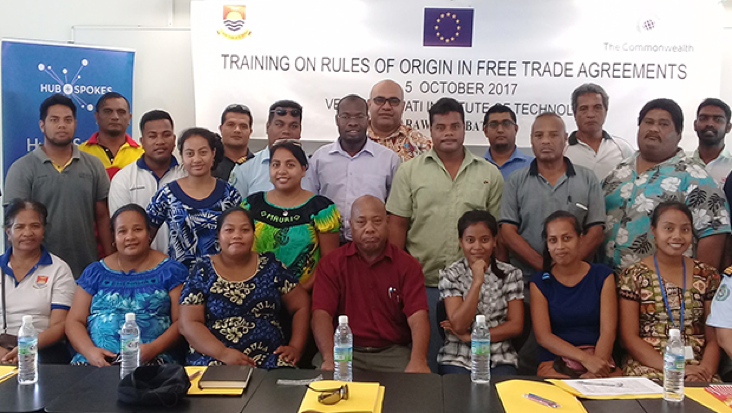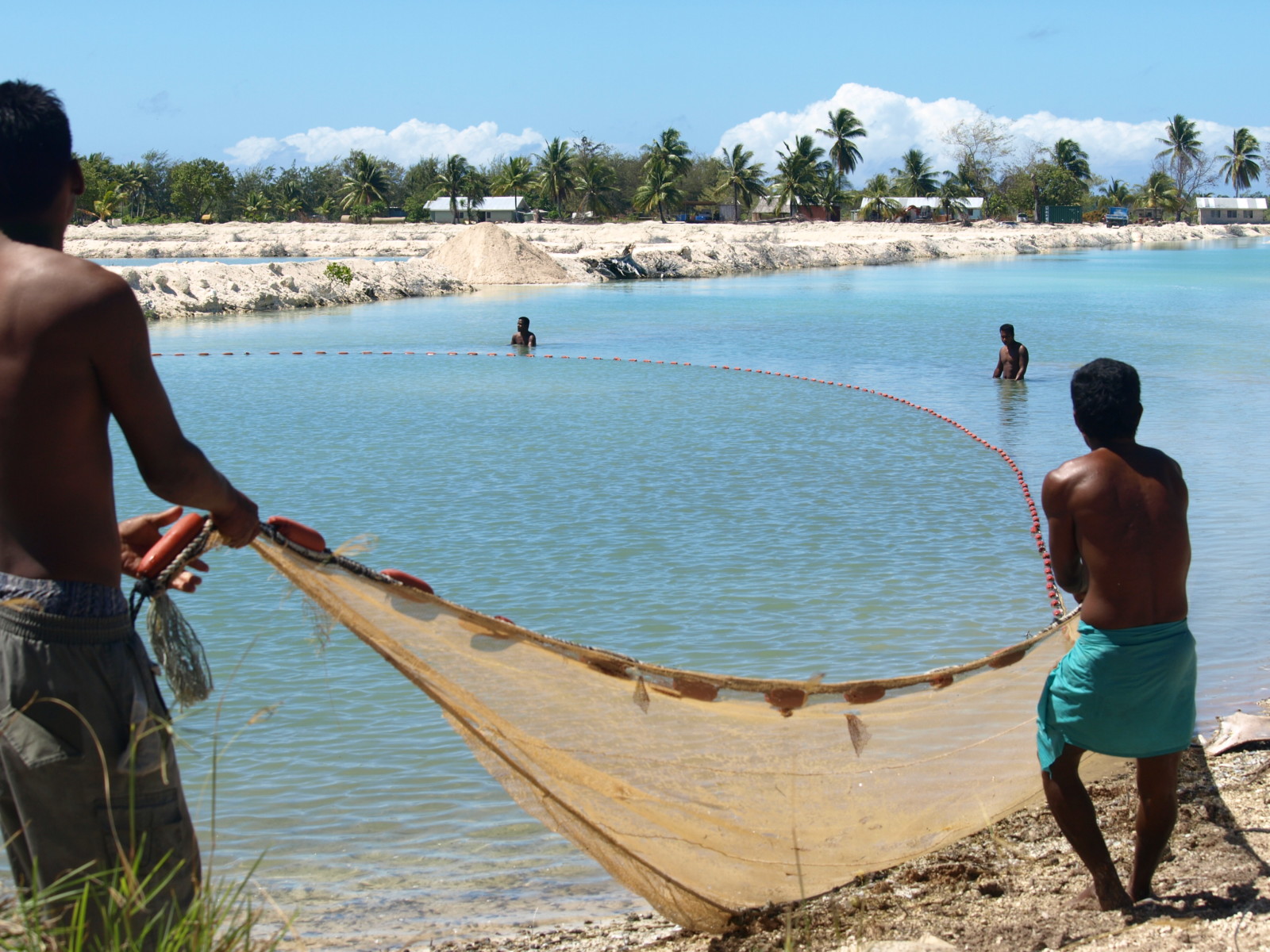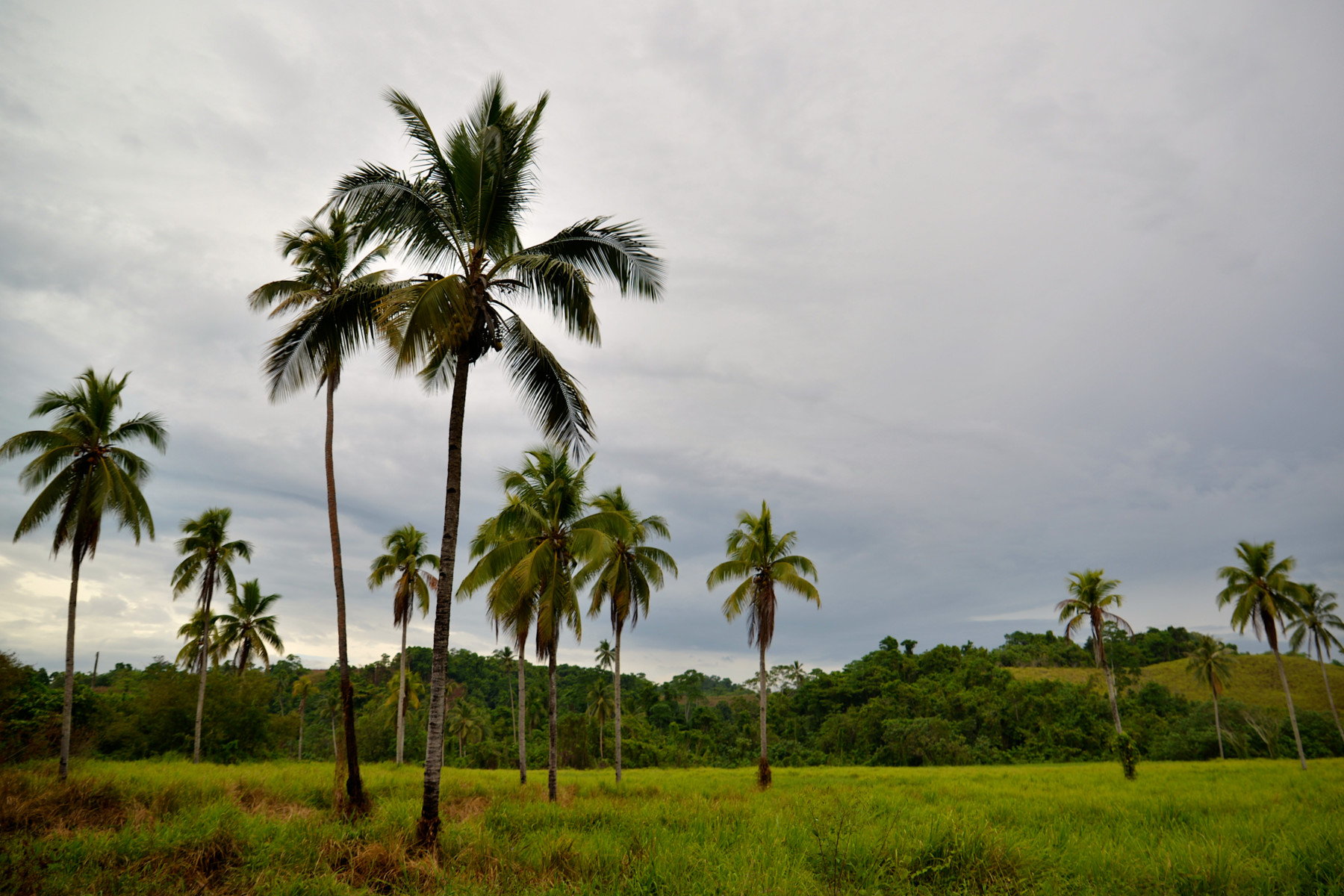
Samson Odhiambo is a long way from home. Since 2014, the Kenyan has lived in Kiribati, an island country in the central Pacific. He’s a national trade adviser there, at the Kiribati Ministry of Commerce, Industry and Cooperatives. He’s working with the ministry to mainstream trade policy and thereby help to develop one of the world’s least developed countries.
Mr Odhiambo works in Kiribati under the Hub and Spokes II Programme. It provides trade experts to national ministries and regional trade organisations to enhance trade capacity in the African, Caribbean and Pacific (ACP) group of states. It is a joint programme of the EU (main donor), ACP Group Secretariat, the Commonwealth Secretariat and the Organisation internationale de la Francophonie. Here he writes about his experience:
An effective and coherent Kiribati trade framework is the foundational platform for Kiribati to engage in regional and global value chains and boost exports.
— Samson Odhiambo, National Trade Adviser at the Kiribati Ministry of Commerce
“Kiribati is a small, developing state with a population of approximately 110,000 people. The economy is largely dependent on service contributions to GDP, followed by agriculture, with industry only at a low level. From a trade perspective, exports are limited to coconut and fish products.
“Kiribati’s low export levels are attributed to limited product varieties, that in turn are limited through low value addition and supply capacity. While exports account for US$7 million annually, imports are around $100 million and are predominantly foodstuffs, creating a large trade deficit.
“Remittances from seafarers and seasonal workers schemes in New Zealand have been a large source of income in the past, whilst income from fishing licenses account for the majority of government income.
“Economic policy reforms are being undertaken to open up the Kiribati economy to trade, including abolishing the customs duty tax and introducing value added tax (VAT) and Excise Tax on specific goods. Advancing the trade development agenda at the national level has however been constrained by inadequate trade mainstreaming into national and sectoral policy, with the trade priorities not well articulated.”
Trade policy mainstreaming for development
“To address the trade policy gap, I have assisted the Ministry of Industry, Commerce and Cooperatives in implementing initiatives to support trade mainstreaming into sectoral strategies and the Kiribati Development Plan. Training and sensitisation was provided to stakeholders on various issues relevant within the trade policy spectrum. This included 200 parliamentarians trained and sensitised since 2014 as high level policy makers and legislators – this has contributed to substantive interest in trade policy issues.”

Success: the new Kiribati Development Plan
“For the Kiribati Development Plan 2016-2019, I assisted in the mainstreaming of trade priorities to ensure wider political trade support and national ownership. Key priorities included the formulation and implementation of a Trade Policy Framework and Investment Policy Framework, as well as coconut development strategy as a key export product for Kiribati. Another key commitment was a priority to undertake business law reform as the key ingredient to private sector development. “In the context of ensuring an inclusive mechanism for trade policy making, I also provided technical support towards the development of trade consultations and a coordination mechanism, which acts as multi-stakeholder trade mainstreaming platform.
“The so-named National Trade Advisory Committee (NTAC) was constituted through a Cabinet Memorandum in 2015 and is composed of key government ministries, civil society and representatives from the private sector and Kiribati Chamber of Commerce and Industry. The NTAC provides an important platform for the discussion of trade and development priorities, contributing to policy coherence and national policy ownership.
“Some of my other work has also focused on trade considerations within sectoral policies. For example, under the Labour Mobility Strategy, my contributions emphasised Kiribati’s commitments to regional trade agreements, and also, how benefits from labour mobility can be maximised through trade agreements.
“Under the Development Cooperation Policy, the role of Aid for Trade was developed as a priority area under the strategy, whilst for the Food Security and Nutrition Policy, contributions focused on food security linkages as an integral part of the nutrition strategy.
“Beyond the mainstreaming trade policy, my work at the Ministry of Industry, Commerce and Cooperatives also focuses on the effective implementation of trade-related policy in Kiribati as well as sensitisation of the private sector.
“An effective and coherent Kiribati trade framework is the foundational platform for Kiribati to engage in regional and global value chains, boost exports, and create a conducive trade environment for the domestic private sector to access other larger markets.”
“The Commonwealth has demonstrable experience in capacity building and technical cooperation, with a particular focus on small states.” – Trinidad and Tobago’s Foreign Minister Senator Dennis Moses.


